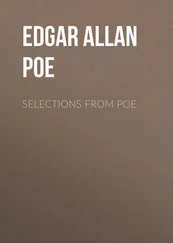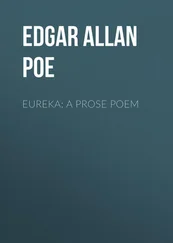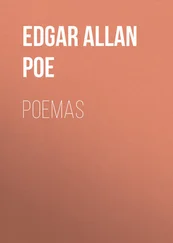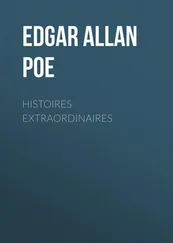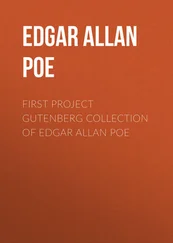Edgar Poe - Landor's Cottage
Здесь есть возможность читать онлайн «Edgar Poe - Landor's Cottage» весь текст электронной книги совершенно бесплатно (целиком полную версию без сокращений). В некоторых случаях можно слушать аудио, скачать через торрент в формате fb2 и присутствует краткое содержание. Жанр: Классическая проза, на английском языке. Описание произведения, (предисловие) а так же отзывы посетителей доступны на портале библиотеки ЛибКат.
- Название:Landor's Cottage
- Автор:
- Жанр:
- Год:неизвестен
- ISBN:нет данных
- Рейтинг книги:3 / 5. Голосов: 1
-
Избранное:Добавить в избранное
- Отзывы:
-
Ваша оценка:
- 60
- 1
- 2
- 3
- 4
- 5
Landor's Cottage: краткое содержание, описание и аннотация
Предлагаем к чтению аннотацию, описание, краткое содержание или предисловие (зависит от того, что написал сам автор книги «Landor's Cottage»). Если вы не нашли необходимую информацию о книге — напишите в комментариях, мы постараемся отыскать её.
Landor's Cottage — читать онлайн бесплатно полную книгу (весь текст) целиком
Ниже представлен текст книги, разбитый по страницам. Система сохранения места последней прочитанной страницы, позволяет с удобством читать онлайн бесплатно книгу «Landor's Cottage», без необходимости каждый раз заново искать на чём Вы остановились. Поставьте закладку, и сможете в любой момент перейти на страницу, на которой закончили чтение.
Интервал:
Закладка:
Landor's Cottage
by Edgar Allan Poe
During a pedestrian trip last summer, through one or two of the river counties of New York, I found myself, as the day declined, somewhat embarrassed about the road I was pursuing. The land undulated very remarkably; and my path, for the last hour, had wound about and about so confusedly, in its effort to keep in the valleys, that I no longer knew in what direction lay the sweet village of B—, where I had determined to stop for the night. The sun had scarcely shone—strictly speaking—during the day, which nevertheless, had been unpleasantly warm. A smoky mist, resembling that of the Indian summer, enveloped all things, and of course, added to my uncertainty. Not that I cared much about the matter. If I did not hit upon the village before sunset, or even before dark, it was more than possible that a little Dutch farmhouse, or something of that kind, would soon make its appearance—although, in fact, the neighborhood (perhaps on account of being more picturesque than fertile) was very sparsely inhabited. At all events, with my knapsack for a pillow, and my hound as a sentry, a bivouac in the open air was just the thing which would have amused me. I sauntered on, therefore, quite at ease—Ponto taking charge of my gun—until at length, just as I had begun to consider whether the numerous little glades that led hither and thither, were intended to be paths at all, I was conducted by one of them into an unquestionable carriage track. There could be no mistaking it. The traces of light wheels were evident; and although the tall shrubberies and overgrown undergrowth met overhead, there was no obstruction whatever below, even to the passage of a Virginian mountain wagon—the most aspiring vehicle, I take it, of its kind. The road, however, except in being open through the wood—if wood be not too weighty a name for such an assemblage of light trees—and except in the particulars of evident wheel-tracks—bore no resemblance to any road I had before seen. The tracks of which I speak were but faintly perceptible—having been impressed upon the firm, yet pleasantly moist surface of—what looked more like green Genoese velvet than any thing else. It was grass, clearly—but grass such as we seldom see out of England —so short, so thick, so even, and so vivid in color. Not a single impediment lay in the wheel-route—not even a chip or dead twig. The stones that once obstructed the way had been carefully placed—not thrown-along the sides of the lane, so as to define its boundaries at bottom with a kind of half-precise, half-negligent, and wholly picturesque definition. Clumps of wild flowers grew everywhere, luxuriantly, in the interspaces.
What to make of all this, of course I knew not. Here was art undoubtedly—that did not surprise me—all roads, in the ordinary sense, are works of art; nor can I say that there was much to wonder at in the mere excess of art manifested; all that seemed to have been done, might have been done here—with such natural "capabilities" (as they have it in the books on Landscape Gardening)—with very little labor and expense. No; it was not the amount but the character of the art which caused me to take a seat on one of the blossomy stones and gaze up and down this fairy—like avenue for half an hour or more in bewildered admiration. One thing became more and more evident the longer I gazed: an artist, and one with a most scrupulous eye for form, had superintended all these arrangements. The greatest care had been taken to preserve a due medium between the neat and graceful on the one hand, and the pittoresque, in the true sense of the Italian term, on the other. There were few straight, and no long uninterrupted lines. The same effect of curvature or of color appeared twice, usually, but not oftener, at any one point of view. Everywhere was variety in uniformity. It was a piece of "composition," in which the most fastidiously critical taste could scarcely have suggested an emendation.
I had turned to the right as I entered this road, and now, arising, I continued in the same direction. The path was so serpentine, that at no moment could I trace its course for more than two or three paces in advance. Its character did not undergo any material change.
Presently the murmur of water fell gently upon my ear—and in a few moments afterward, as I turned with the road somewhat more abruptly than hitherto, I became aware that a building of some kind lay at the foot of a gentle declivity just before me. I could see nothing distinctly on account of the mist which occupied all the little valley below. A gentle breeze, however, now arose, as the sun was about descending; and while I remained standing on the brow of the slope, the fog gradually became dissipated into wreaths, and so floated over the scene.
As it came fully into view—thus gradually as I describe it—piece by piece, here a tree, there a glimpse of water, and here again the summit of a chimney, I could scarcely help fancying that the whole was one of the ingenious illusions sometimes exhibited under the name of "vanishing pictures."
By the time, however, that the fog had thoroughly disappeared, the sun had made its way down behind the gentle hills, and thence, as it with a slight chassez to the south, had come again fully into sight, glaring with a purplish lustre through a chasm that entered the valley from the west. Suddenly, therefore—and as if by the hand of magic—this whole valley and every thing in it became brilliantly visible.
The first coup d'oeil, as the sun slid into the position described, impressed me very much as I have been impressed, when a boy, by the concluding scene of some well-arranged theatrical spectacle or melodrama. Not even the monstrosity of color was wanting; for the sunlight came out through the chasm, tinted all orange and purple; while the vivid green of the grass in the valley was reflected more or less upon all objects from the curtain of vapor that still hung overhead, as if loth to take its total departure from a scene so enchantingly beautiful.
The little vale into which I thus peered down from under the fog canopy could not have been more than four hundred yards long; while in breadth it varied from fifty to one hundred and fifty or perhaps two hundred. It was most narrow at its northern extremity, opening out as it tended southwardly, but with no very precise regularity. The widest portion was within eighty yards of the southern extreme. The slopes which encompassed the vale could not fairly be called hills, unless at their northern face. Here a precipitous ledge of granite arose to a height of some ninety feet; and, as I have mentioned, the valley at this point was not more than fifty feet wide; but as the visiter proceeded southwardly from the cliff, he found on his right hand and on his left, declivities at once less high, less precipitous, and less rocky. All, in a word, sloped and softened to the south; and yet the whole vale was engirdled by eminences, more or less high, except at two points. One of these I have already spoken of. It lay considerably to the north of west, and was where the setting sun made its way, as I have before described, into the amphitheatre, through a cleanly cut natural cleft in the granite embankment; this fissure might have been ten yards wide at its widest point, so far as the eye could trace it. It seemed to lead up, up like a natural causeway, into the recesses of unexplored mountains and forests. The other opening was directly at the southern end of the vale. Here, generally, the slopes were nothing more than gentle inclinations, extending from east to west about one hundred and fifty yards. In the middle of this extent was a depression, level with the ordinary floor of the valley. As regards vegetation, as well as in respect to every thing else, the scene softened and sloped to the south.
Читать дальшеИнтервал:
Закладка:
Похожие книги на «Landor's Cottage»
Представляем Вашему вниманию похожие книги на «Landor's Cottage» списком для выбора. Мы отобрали схожую по названию и смыслу литературу в надежде предоставить читателям больше вариантов отыскать новые, интересные, ещё непрочитанные произведения.
Обсуждение, отзывы о книге «Landor's Cottage» и просто собственные мнения читателей. Оставьте ваши комментарии, напишите, что Вы думаете о произведении, его смысле или главных героях. Укажите что конкретно понравилось, а что нет, и почему Вы так считаете.


